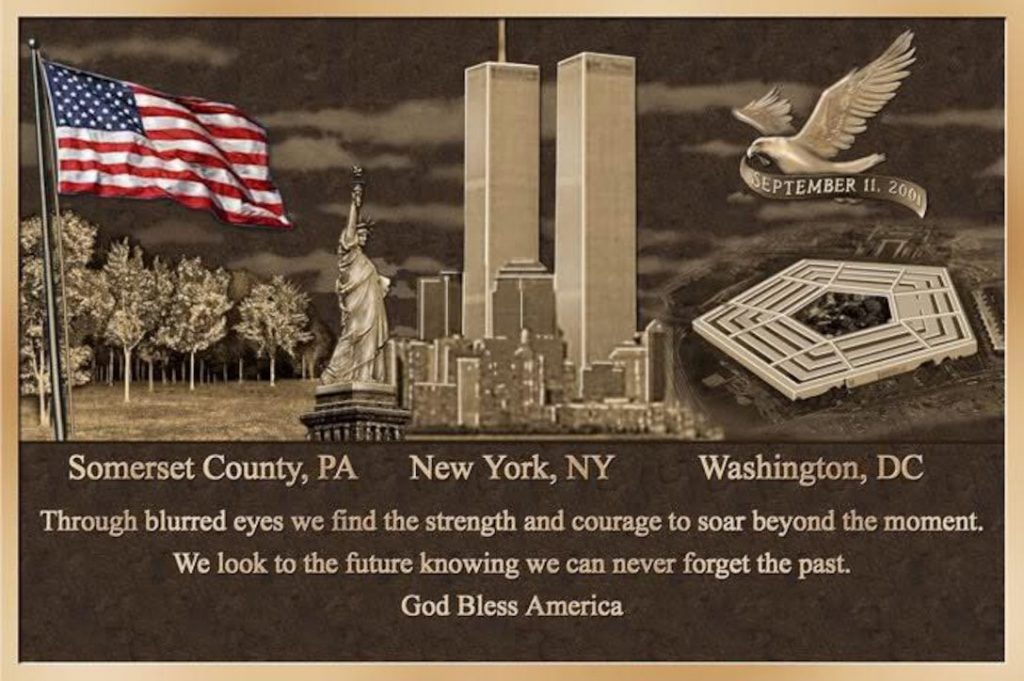
Tomorrow marks the 20th anniversary of the 9/11 attacks on the World Trade Center and the Pentagon. Just as December 7, 1941 — the Japanese attack on Pearl Harbor — was proclaimed by President Franklin D. Roosevelt as “a date which will live in infamy,” so, too, will the 9/11 attack rank among the most tragic dates in American history. Just as Pearl Harbor defined America’s World War II veterans as “The Greatest Generation,” 9/11 has defined a generation of service members who served in the Iraq and Afghanistan wars. In fact — a sobering fact — our youngest currently-serving military members have known only war.
The events on 9/11 will be forever etched into America’s memory. Like the John F. Kennedy assassination, it will also be etched into the memories of my generation. Before 9/11, Americans of my age would occasionally ask “where were you when Kennedy was assassinated.” I was a child, but I remember it vividly. I was living in a trailer at the end of the runway at Wheelus Air Base, Libya, with my Air Force NCO father, mother, and brother. We watched as those events unfolded on the Armed Forces Network broadcast from Europe on our little black and white TV. Today, my answer to the question “where were you on 9/11” is Yokota Air Base, Japan. It was late in the evening and my wife, Kathy, and I were getting ready for bed. We’d just arrived in Tokyo and were living in one of the Yokota base “tower” TLFs (Transient Living Facilities — essentially, a hotel) watching the Armed Forces Network TV channel and witnessing what we initially thought was an action movie. As the events unfolded, it became clear that it was no movie. The call I received a little while later telling me to report to the US Forces Japan command post “battlestaff” provided further proof that something devastating and sinister was happening.
Through the night, we watched the twin towers collapse and then witnessed the second of the one-two punch as an airliner hit the Pentagon. Sitting in Japan listening to my new colleagues compare these events to Pearl Harbor was more than a little surreal. My thoughts, though, turned immediately to the attack on the Pentagon — the building in which I worked only a couple of weeks earlier — and the men and women for whose safety I prayed.
Thus began the “Global War on Terror,” a conflict, primarily in Afghanistan, involving a NATO and non-NATO coalition that ultimately suppressed the terrorist groups responsible for the 9/11 attacks. For the next 20 years, America’s armed forces would be engaged in protracted combat in a place that has been called “the graveyard of empires.” The name came from the fact that, throughout history, many nations have invaded but never conquered Afghanistan. The Soviet Union failed not long before we invaded; as of 31 August 2021, the United States joined that list.
As we mark the 20th anniversary of 9/11, America’s attention will be focused on 8/31/2021: the end of US military operations in Afghanistan. The questions many of us who served in or supported those operations are now asking are whether our departure also marks the end of the Global War on Terror and whether the 20 years we spent in Afghanistan — and all the blood and treasure we spent there — made a difference. Although I can’t answer the first question and I’m not sure anyone really can at this point, I personally believe that global terrorism has not been vanquished. Nevertheless, what I do know without doubt is that we did make a difference.
Will our departure from Afghanistan mean we will be less safe in the future? I guess we’ll see. What I do know is that at least during the 20 years we were there, our world was safer. I know many of my fellow veterans despair about the way we left Afghanistan. I certainly understand. What I hope we also understand as the national debate over our exit continues is that we — those of us who survived with or without wounds and those whose comrades, sons, daughters, husbands, fathers, wives, and mothers gave their lives on Afghanistan’s desolate battlefields — can and should hold our heads high. We and our fallen comrades served as soldiers, sailors, Airmen, and Marines in the highest traditions of America’s armed forces. About that fact there can be no debate, period.
The 20th anniversary of 9/11 will be as somber and sobering a moment as the attack itself was 20 years ago. As we count our losses as a Nation, AMBA is proud of the sacrifices the veterans and victims of this long war have made and continue to make. We know and will always remember that as America moves on, the Afghanistan war will always be a part of the men and women who served there. That’s why my 9/11 remembrance will be not only the Americans whose lives were taken on 9/11, but also the men and women who served in uniform to avenge them.
STEVEN J. LEPPER
Major General, USAF (Ret.)
President & Chief Executive Officer